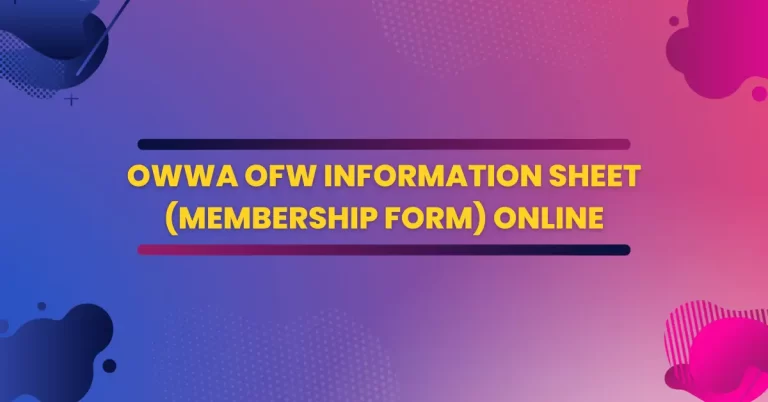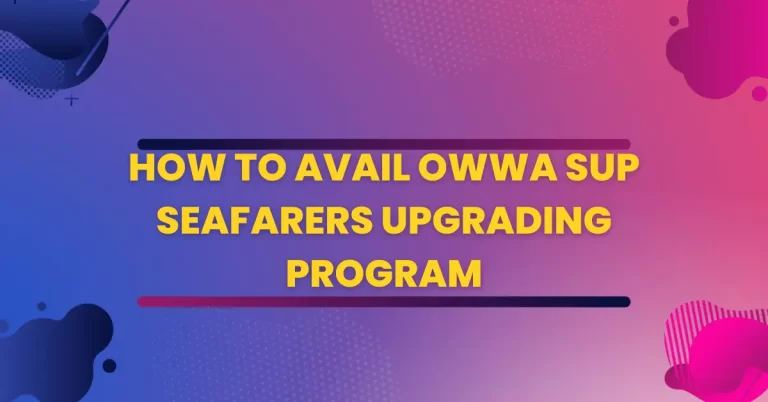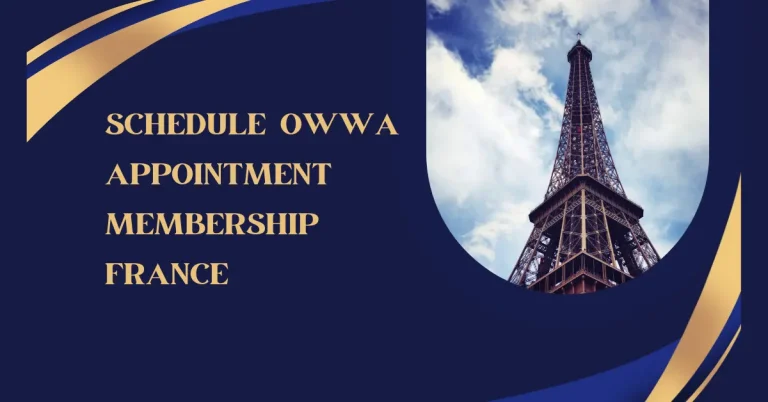How to Avail OWWA Repatriation Assistance for OFWs
“The OWWA agency has recently received an emergency fund to implement its repatriation assistance program for overseas Filipinos who have been affected by or are currently facing the consequences of conflicts, disasters, or other similar crises beyond their control.
One of the notable instances where this program was utilized was during the initial wave of the COVID-19 pandemic, which heavily impacted Europe and the Americas.How to Avail OWWA Repatriation Assistance for OFWs This global health crisis led to the disruption of numerous industries and resulted in the displacement of many Filipino workers, both within the country and abroad. The repatriation assistance provided by the agency is part of its commitment to social and family welfare services, extending support to distressed OFWs who are experiencing the effects of war, state violence, economic crises, as well as both man-made and natural disasters.
The repatriation program is a testament to the government’s and the nation’s recognition of the immense dedication and sacrifices made by our OFWs, regardless of their location. If you or someone you know requires assistance in returning to the Philippines, this article aims to provide guidance on the repatriation process facilitated by OWWA.”
Overview
The OWWA (Overseas Workers Welfare Administration) repatriation assistance program aims to support overseas Filipinos in returning home during periods of crisis while they are employed overseas. This program acknowledges that overseas Filipino workers may encounter various challenges or emergencies, and it provides assistance to ensure their safe repatriation.
The program offers a range of services and benefits to eligible members, including financial assistance for transportation expenses, temporary shelter and accommodation upon arrival, and provision of basic necessities. OWWA also collaborates with partner agencies and organizations to facilitate the repatriation process and provide necessary support and services.
By providing repatriation assistance, the OWWA aims to ensure the welfare and protection of overseas Filipinos, especially during times of crisis such as natural disasters, political unrest, or armed conflicts in their host countries. This assistance program plays a crucial role in addressing the needs of overseas Filipino workers and facilitating their return home to the Philippines.
“They must meet one or more of these criteria: they suffer from conflict, calamity, or similar crises outside their control; they are victims of trafficking and exploitation; they are stateless or displaced persons; they face extreme poverty that prevents them from meeting basic needs like food and shelter; they lack access to education and employment opportunities because of discrimination based on race, ethnicity, religion, gender identity, or sexual orientation; etcetera.”
To paraphrase the given statement:
“They must fulfill at least one of the following conditions: they experience conflict, disasters, or comparable emergencies beyond their control; they are subjected to trafficking and exploitation; they are individuals without nationality or displaced persons; they endure severe poverty that hinders their ability to fulfill basic requirements such as food and housing; they lack access to educational and employment prospects due to discrimination based on race, ethnicity, religion, gender identity, or sexual orientation; and so on.”
Benefits
The mentioned benefits are provided to qualified beneficiaries of a certain program. It appears to be a program aimed at providing support and assistance to individuals in specific circumstances, such as returning overseas Filipino workers (OFWs) or individuals in need of assistance.
Here’s a breakdown of the benefits mentioned:
- Airport Assistance: This benefit likely involves providing support and guidance to beneficiaries upon their arrival at the airport. It may include assistance with immigration, baggage handling, or other related services.
- Free Packed Food: Upon arrival at the airport, beneficiaries are entitled to receive free packed food. This provision ensures that they have access to meals during their travel or quarantine period.
- Free Transportation to Quarantine Facility and Accommodations: The program covers the cost of transportation for qualified beneficiaries from the airport to a designated quarantine facility. Additionally, it provides accommodations during the quarantine period.
- Psychosocial Therapy and Stress Debriefing: This benefit aims to support the mental and emotional well-being of beneficiaries. It may involve counseling sessions, therapy, or debriefing sessions to help them cope with any stress or emotional challenges they may be facing.
- Temporary Accommodation at OWWA’s Halfway House: OWWA stands for the Overseas Workers Welfare Administration, an agency in the Philippines that provides assistance to OFWs. The program offers temporary accommodation at OWWA’s Halfway House, which could serve as a transitional shelter or support facility for beneficiaries.
- Transportation Facilities or Fares for Onward Travel: Once the quarantine period is over, qualified beneficiaries may receive transportation facilities or fares to travel to their hometown or final destination. This support is likely provided through the assistance of OWWA staff.
Qualifications
The OWWA repatriation assistance is available to Filipino citizens employed either on land or at sea, including seafarers. Your membership status with OWWA is not a requirement to be eligible for this assistance. This means that both active and inactive OWWA OFW members can apply for repatriation assistance.
“Moreover, the Overseas Filipino Workers (OFWs) eligible for enrollment in this initiative are individuals facing challenging circumstances such as those who have experienced human trafficking, displacement due to conflict in their host country, and other similar crises.”
Requirements
Qualified applicants for repatriation assistance must secure the following documents upon their application:
- Duly accomplished DOLE-OASIS Form and e-CIF Form
- Valid passport
- The exact address and active contact number
- Exit visa
How to Apply for the OWWA Repatriation Program
Once you have secured the documentary requirements, follow these steps to continue your application:
To get accurate and up-to-date information on the process you mentioned, I recommend contacting the Department of Labor and Employment (DOLE) or the Overseas Workers Welfare Administration (OWWA) directly. They should be able to provide you with the most accurate and relevant information regarding the forms, procedures, and requirements for your specific situation.
You can visit the official websites of DOLE (https://www.dole.gov.ph/) or OWWA (https://owwa.gov.ph/) to find contact information or look for the specific forms and instructions you need. Alternatively, you can also try reaching out to the nearest Philippine Embassy, Consulate, or the designated OWWA-POLO office for assistance and guidance.
It’s important to rely on official sources and updated information to ensure that you follow the correct procedures and fulfill all the necessary requirements.
General Guidelines
Here’s a breakdown of the key points:
- Personal Data Sharing: By filling out the DOLE-OASIS Form, you are sharing your personal data with the Department of Labor and Employment (DOLE), the Philippine Overseas Employment Administration (POEA), the Overseas Workers Welfare Administration (OWWA), and your local Philippine Overseas Labor Office (POLO). This data centralization allows these agencies to respond to emergencies and address your concerns.
- Deadline: The DOLE-OASIS Form should be completed at least five (5) days before your scheduled flight to the Philippines. This is to ensure that the concerned agencies have enough time to process your information and provide the necessary assistance.
- Online Registration and Updates: Registering online for DOLE-OASIS enables you to easily update your information if you require repatriation or other services in the future.
- Assistance through Recruitment Agencies: If you are unable to reach your designated OWWA-POLO office, you can contact your recruitment agency for assistance in the repatriation process. All registered recruitment and manning agencies are legally obliged to provide such assistance to OFWs. By allowing them to register on your behalf, you consent to the use of your personal information solely for the purpose of repatriation application.
- Reporting to POEA: Recruitment and manning agencies are responsible for reporting to the POEA the names of OFWs to be repatriated, along with their flight schedule, port of embarkation and disembarkation, and other relevant information.
- COVID-19 Requirements: Due to the surge in COVID-19 cases in the country, applicants are required to complete the e-CIF Form before their arrival in the Philippines. This form is necessary for immigration and quarantine clearance purposes.
It’s important to note that the provided information is accurate up until September 2021. If you have any specific questions or require the most up-to-date information, I recommend contacting the relevant government agencies or referring to their official websites for the latest guidelines and procedures.
Frequently Asked Questions (FAQs)
You may check out these common questions and answers about the process in applying for the OWWA Repatriation Assistance:
1. What is “repatriation”? Is it not a financial benefit?
Repatriation is the process of returning a person or their remains, as well as their belongings, to their home country. While it is not a financial benefit, it does merit its own benefits, especially for OFWs who are stuck in political, economic, environmental, or public health crises. Aside from repatriation assistance, OWWA also offers reintegration loans and programs to help distressed OFWs recover once they go home.
2. Does the exit visa count as a travel document?
No, the exit visa is not a travel document but is required for you to leave the country and go back to the Philippines.
3. How can I get an exit visa?
You may request an exit visa through:
- Your employer or sponsor, who will apply for an exit visa on your behalf;
- Your Passport Office
- The Philippine Embassy, Consulate or local POLO office in your country of employment, if you are undocumented, do not have an active passport, or do not have a valid employer.
4. What if I can’t schedule a flight for my repatriation?
Should you need assistance in scheduling your flight to the Philippines, you may reach your recruitment agency or your local POLO office to assist you with your flight schedule. A flight schedule is important prior to repatriation.
Summary
In summary, it is crucial that we remember who and where we are deployed as overseas Filipino workers (OFWs), whether we are active or inactive members of the Overseas Workers Welfare Administration (OWWA) so that we can easily find our way back home in times of crisis. How to Avail OWWA Repatriation Assistance for OFWs OWWA’s repatriation assistance brings us one step closer to achieving that goal.
Overseas Filipino workers have played a vital role in the national economy for decades, contributing approximately 9% of the country’s Gross Domestic Product (GDP) through remittances.
However, with these milestones comes a great deal of sacrifice, often impacting the well-being and security of OFWs. That is precisely why the Overseas Workers Welfare Administration was established – to promote and protect the interests of OFWs, including providing repatriation services for our distressed and deceased fellow Filipinos.
If you want more information about repatriation and other OWWA programs, I encourage you to visit their website at www.owwa.gov.ph or their official Facebook page at www.facebook.com/OWWAofficial.



